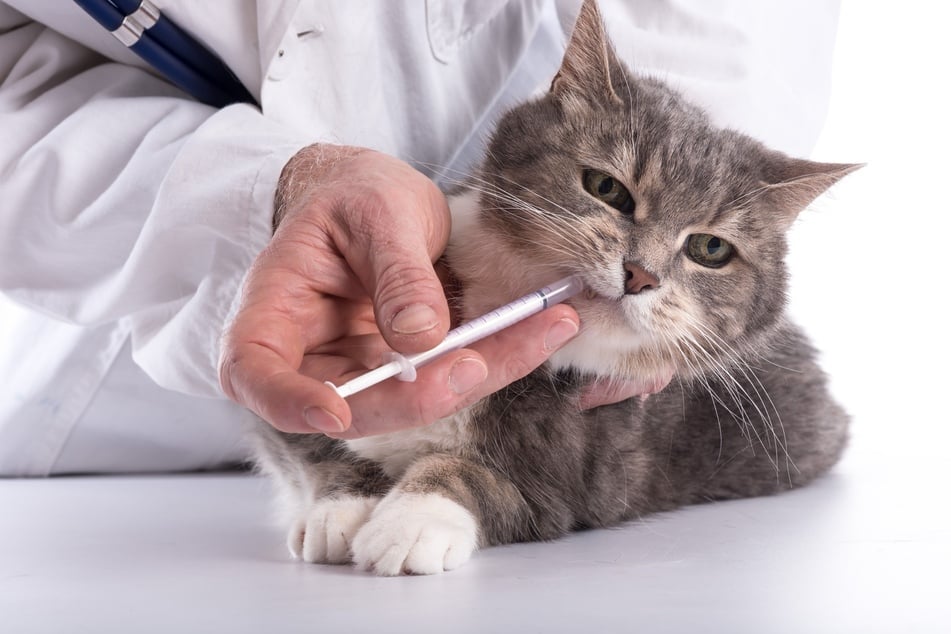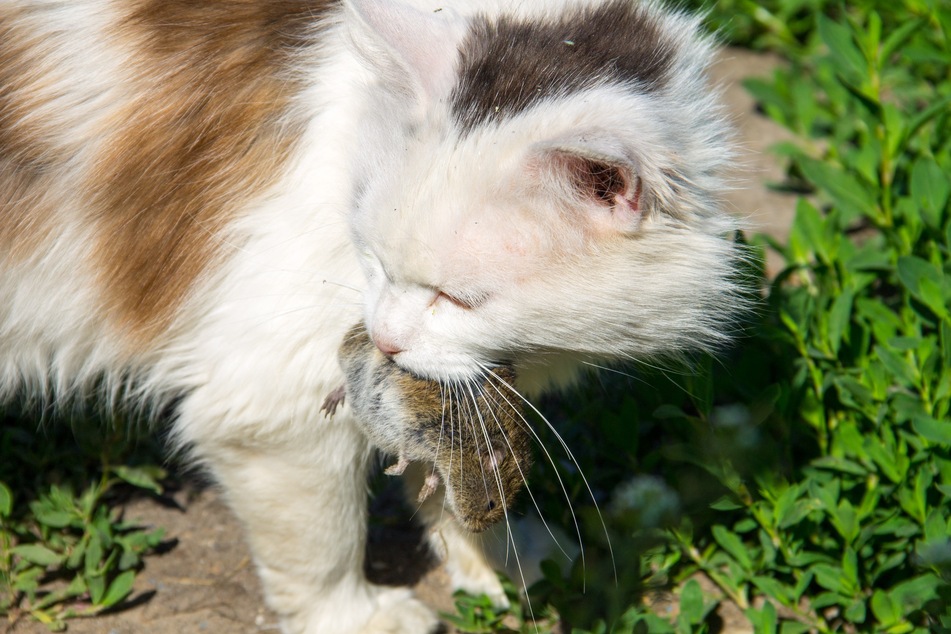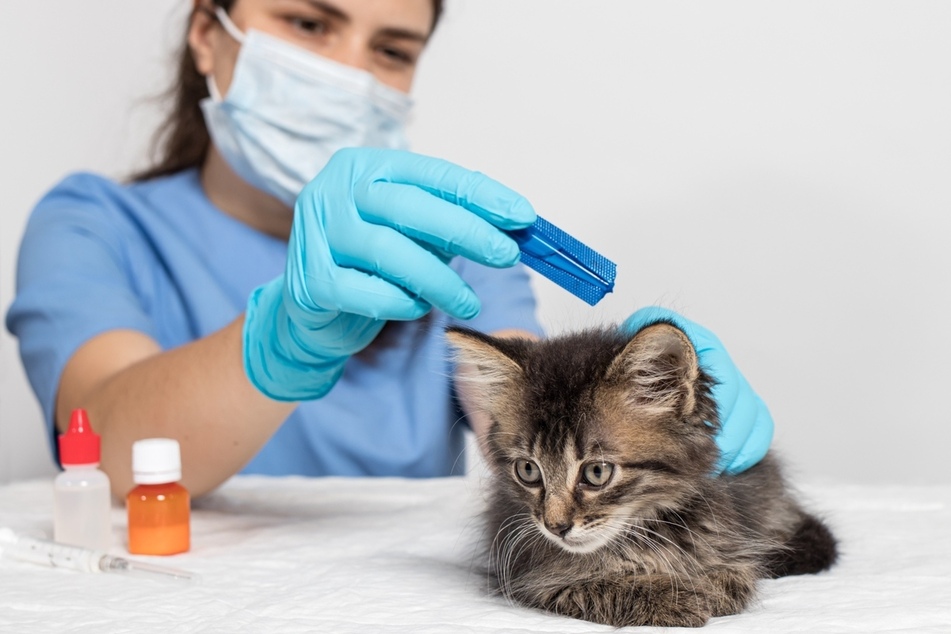Cat worms: Symptoms, treatments, causes
Worms are a true nuisance, spreading through a cat's body and turning them from adorable little angels to furry fluffballs of fury. What are the causes of cat worms, though, and how can you treat them?

There is only one thing that is more unpleasant than coming down with a case of the worms, and that's having a cat with worms.
These unhappy and stressed-out kitties will tear through the house, raging with discomfort and a constant sense of irritation.
But what can you do to help them?
If you've got a cat with worms, then this cat guide is the perfect place to be. We'll discuss what caused your cats to get worms, what the symptoms are to look out for, and how you can treat a worm-infested kitty.
Causes of cat worms: Why are there worms in my cat's poop?
Cats generally catch worms from interactions with other animals or the waste of other animals that have been infested with worms. As a result, if your cat has caught worms then it is probably because it caught them from something it has hunted and killed, another cat that it has been in a fight with, or another animal's feces.
Outdoor cats are far more likely to catch worms than indoor cats, though it is not unusual for cats that stay indoors to pick up worms from dirt or mud that has been brought in on the soles of someone's shoes. As a result, regular deworming and checkups at the veterinarian are a must for both indoor and outdoor cats.
The worms we're talking about today are considered "endoparasites," meaning they are parasitic creatures that infest the inside of other animals. Building colonies in the organs of cats, dogs, and other animals, these worms come in a variety of forms ranging from the benign to the dangerous.
These are the various types of worms that you should be aware of:
- Roundworms
- Ringworms
- Tapeworms
- Hookworms
- Lungworms
- Heartworms
- Bladderworms
No matter the type of worm that your cat has been infested with, quick and timely medical treatment will likely solve the problem.
Cat worms symptoms: How to tell if a cat has worms
While each different kind of worm will affect your cat in a variety of different ways primarily based on how and what they attack in your cat's body, there are a few symptoms that will give away an infestation. If you are worried about your cat, pay attention and study its behavior.
Keep in mind the area of the body that seems to be infected and look for signs of things that could be wrong with specific organs. If it seems, for example, that your dog has signs of congestion or is coughing a lot, it could be lungworms on the attack (or asthma, either way, you should go to the vet.)
Here are the most common symptoms of a worm infestation in cats:
- Bloating
- Diarrhea
- Loss of appetite
- Vomiting
- Weight loss or, in some cases, gain
- Increased fatigue and listlessness
- Worms in feces
- Changes in the coat of your cat
In some cases, cats may not show any symptoms of a worm infestation whatsoever. This makes it even more important to take preventative measures.

Cat worms treatment
The best form of cat worm treatment is preventative via the use of dewormers. Still, while that will always be the best idea, if your cat has already been actively infested then the response of your veterinarian may take on a different form. There are generally only three steps that you must take in response to treating a case of active worms.
Here's how to go about cat worm treatment
Step 1: Go immediately to your veterinarian if you suspect a worm infestation, do any necessary tests, and pick up the required medication.
Step 2: Apply the medication or treatment that your veterinarian has prescribed in the way described and explained to you by the physician. This may involve giving your cat pills or even injections.
Step 3: Check back with your veterinarian at the required time to take a look at the progress made and guarantee that treatment has been successful.
In general, it will usually take around four weeks for cat worm treatment to be finished and to have done its job properly. Afterward, preventative measures should be taken to avoid a repeat offense.
Important: No home remedies should ever be used throughout the process of treating a cat worm infestation. This is a medical condition, so go to the vet and seek proper assistance from a professional.
How to deal with cat worms in poop
If you notice that your cat has worms in its stool, then you have a clear and straightforward diagnosis already. Still, in such a case you need to take extra precautions and be especially careful that you yourself or any other people or animals in your household don't also get infected with these cunning parasites.
There are two things that need to be done if there are worms in your cat's stool:
- First: Deal with the stool properly. You need to put on thick gloves and dispose of the stool as quickly and efficiently as possible without cross-contaminating anything. This means replacing all the cat litter each time your cat "goes to the bathroom" and making sure that none of it gets on your skin, clothes, or anywhere that another animal or person could be contaminated. Make sure that you wash your hands frequently and thoroughly afterward.
- Second: Follow the steps above to seek proper medical attention for your cat and follow the treatment schedule set out by your veterinarian.
It's important to note that different kinds of worms can be very dangerous to young children and babies. In addition to dealing with your kitty, make sure to get your child regularly checked by a pediatrician if your cat gets worms so as to make sure that there is no parasite transmission.
Cat worms in stool are incredibly disgusting, but they need to be dealt with seriously. Make sure that they are sealed well in plastic bags and put directly into your outside garbage cans.
Cat dewormer for all worms

There are many different kinds of cat dewormer, but they are all extremely effective and worth the price. Mostly applied onto the back of the neck in a serum that also includes medications that fight back against fleas, ticks, and other nasties, you will generally apply the dewormer once a month.
It is the perfect preventative measure as it allows your cat to go about its business without being a target for worms and other creatures that might spell unpleasantness. Keep in mind, though, that this is not a get-out-of-jail-free card and it is still possible (though highly unlikely) for your cat to be infected with worms if these measures are taken.
It can be very difficult to apply the serum if you are inexperienced but, to be honest, after the first few times both you and your cat will get used to the process.
For your information: Don't just buy a random dewormer – make sure to go to the veterinarian first and get a prescription for a good-quality dewormer endorsed by a medical professional that is certain to be safe for your fluffy little friend.
My cat has worms, should I be worried?
While worms are some of the most unpleasant and irritating invaders, they are not worth freaking out about. You should act quickly and decisively to get rid of them and treat your cat but don't worry about any serious long-term problems. If you react fast, then you have nothing to worry about.
Of course, your cat is going to be very unhappy before the medicine fully kicks in, but with the right medically prescribed treatment it will be a relatively short convalescence and your pet will get over their worms relatively quickly.
Cover photo: 123RF/Thodonal




